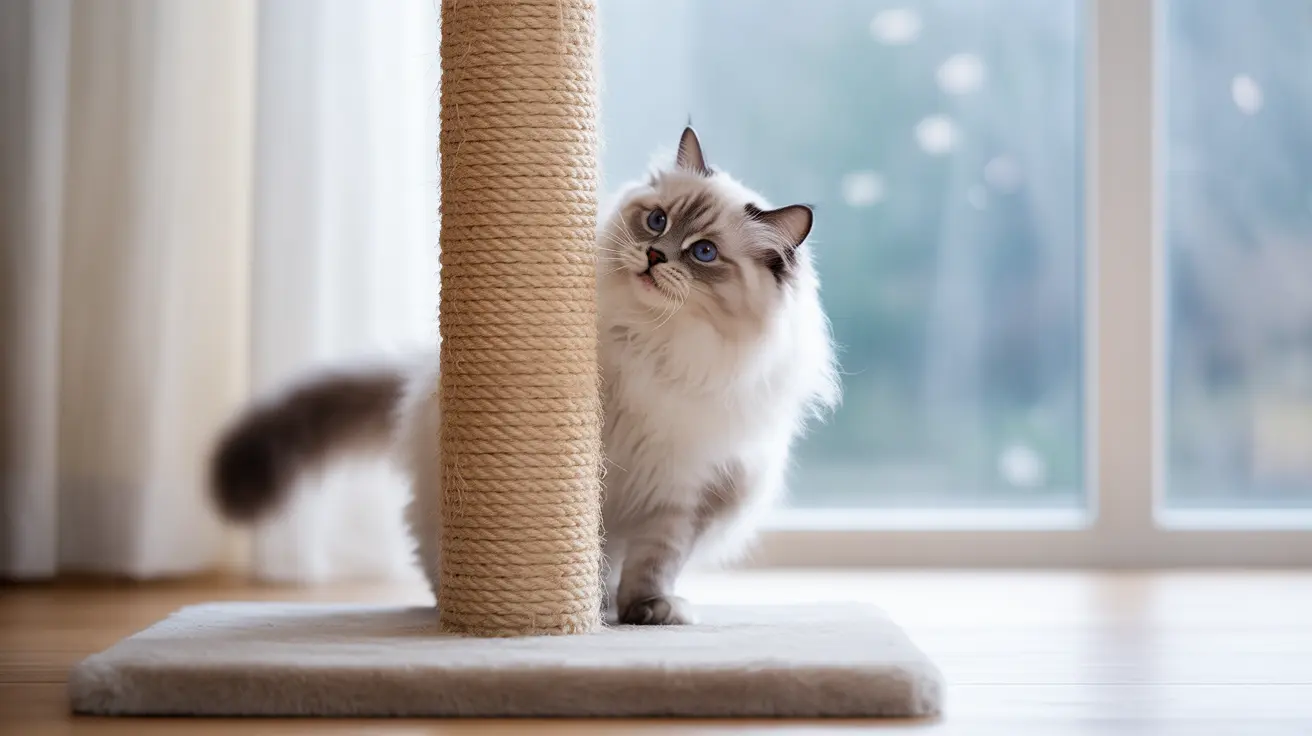Understanding Why Cats Spray
Cat spraying is a frustrating but natural behavior that many pet owners face. Unlike regular urination, spraying is a territorial marking behavior where cats deposit small amounts of urine on vertical surfaces while standing upright with a quivering tail. While more common in unneutered male cats, any cat may spray due to stress, anxiety, or territorial disputes.
Understanding the root cause of your cat's spraying behavior is crucial for implementing effective solutions. This comprehensive guide will help you identify triggers and provide practical steps to stop your cat from spraying.
Medical Causes vs. Behavioral Issues
Before addressing spraying as a behavioral problem, it's essential to rule out medical conditions. Schedule a veterinary examination to check for:
- Urinary tract infections
- Kidney disease
- Bladder stones
- Diabetes
- Other underlying health issues
Your veterinarian will likely perform blood work and urinalysis to ensure your cat's spraying isn't related to a medical condition requiring treatment.
The Impact of Spaying and Neutering
One of the most effective ways to prevent spraying is through early spaying or neutering. Statistics show that approximately 90% of male cats stop spraying after neutering, especially when the procedure is performed before sexual maturity (around 6 months of age).
Even if your cat is already spraying, neutering can significantly reduce or eliminate the behavior. However, if spraying continues several weeks after the surgery, additional interventions may be necessary.
Creating a Stress-Free Environment
Cats often spray in response to stress or anxiety. To create a calming environment:
- Maintain consistent daily routines
- Provide multiple litter boxes, food bowls, and water stations
- Install cat trees and hiding spots
- Use calming pheromone diffusers
- Minimize exposure to outdoor cats
- Create vertical territory with shelves and perches
Effective Cleaning Methods
Proper cleaning of sprayed areas is crucial to prevent remarking. Use enzymatic cleaners specifically designed for cat urine, as these break down the proteins that cause odors. Regular household cleaners may actually encourage repeated spraying.
Steps for effective cleaning:
- Blot the area thoroughly
- Apply enzymatic cleaner generously
- Allow the area to air dry completely
- Consider using UV light to detect missed spots
- Repeat if necessary
Managing Multi-Cat Households
Multiple cats can increase territorial tension and spraying behavior. Ensure each cat has:
- Their own litter box (plus one extra)
- Separate feeding stations
- Individual resting areas
- Multiple escape routes
- Access to different vertical spaces
Frequently Asked Questions
How can I stop my cat from spraying in the house?
Implement a combination of approaches including neutering, stress reduction, proper cleaning, and environmental enrichment. Ensure all litter boxes are clean and easily accessible, and use feline pheromone products to create a calming environment.
Why does my cat spray on vertical surfaces instead of using the litter box?
Spraying on vertical surfaces is a distinct marking behavior different from normal urination. Cats spray to mark territory, communicate with other cats, or respond to stress. This behavior is not related to litter box habits.
Can neutering or spaying my cat reduce or stop spraying behavior?
Yes, neutering or spaying is highly effective in preventing and stopping spraying behavior, especially when performed early. About 90% of male cats stop spraying after neutering.
What are the best cleaning methods to remove cat spray odors and prevent respraying?
Use enzymatic cleaners specifically designed for cat urine. These products break down the proteins in the urine, eliminating both the odor and the cat's desire to remark the area. Avoid ammonia-based cleaners, which can attract cats back to the spot.
How can I reduce stress and environmental triggers that cause my cat to spray?
Minimize changes in your home environment, provide multiple resources (litter boxes, scratching posts, perches), use pheromone products, and create safe spaces where your cat can retreat when feeling stressed.
Conclusion
While cat spraying can be a challenging behavior to address, a combination of medical evaluation, environmental modifications, and consistent cleaning practices can effectively resolve the issue. Remember that patience is key, and consult with your veterinarian if the behavior persists despite implementing these solutions.






